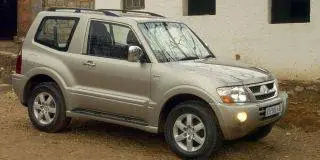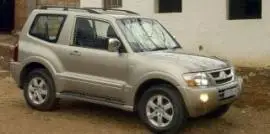2005, Mitsubishi, Pajero SWB 3.8

-
Category
-
PostedOct 21, 2025
-
Views134
A Mitsubishi Pajero, driven by Andrew Cowan, finished the 1983 Paris–Alger–Dakar as the winner in class with another teammate George Debussy coming second in class and 14th overall after covering more than 11,000 km, beginning the Pajero's Dakar Rally legacy.
Mitsubishi competed primarily in the Modified Production Class (T2) category. Contrary to popular belief, T2 vehicles are almost identical to those sold to the public.
Mitsubishi dominated with multiple first, second and third place podium finishes across the T2 and T3 categories beginning in 1983 until their final wins in 2007. Their overall record was 12 total overall wins (1st place) in the "Cars Class" and 150 stage wins (the second-best being Peugeot with only 78 stage wins in comparison). Mitsubishi earned the title of ‘Most Dakar Rally Wins by A Manufacturer’ from the Guinness World Records.
I used this car to teach people how to dune-bash (drive over large sand dunes). This model represented a huge leap forward in off-road traction on sand. I can’t remember ever getting stuck, although there were many times I thought I would. The upgraded electronic traction system made it almost unstoppable compared to the previous model.
Many expats in the Middle East bought Jeep Wranglers, believing they were great off-road vehicles. My favourite trick was to ask anyone with a Wrangler to follow me through the dunes — the Wranglers would always get stuck, but the Pajero never did. It was the best off-road 4WD I have ever owned.
Once, I even towed a Jeep Cherokee that was towing a trailer with two quad bikes through soft sand. The Jeep had become bogged down, but the Pajero pulled both the Jeep and trailer out without any trouble.
 Petrol
Petrol
 Front wheel drive
Front wheel drive Rear wheel drive
Rear wheel drive Four wheel drive
Four wheel drive Limited slip differential
Limited slip differential Overdrive
Overdrive

